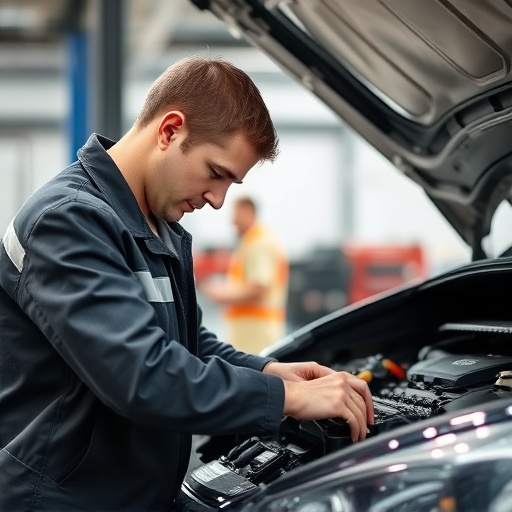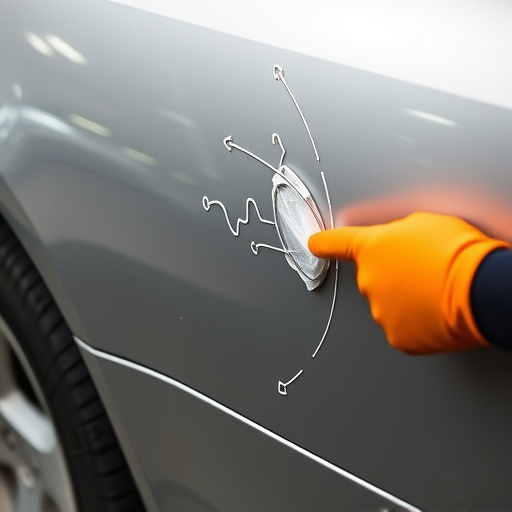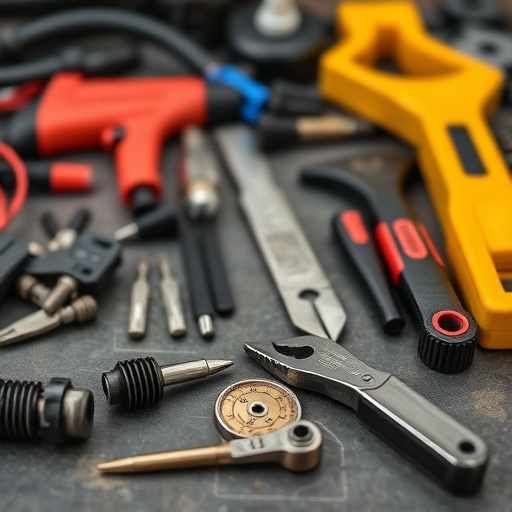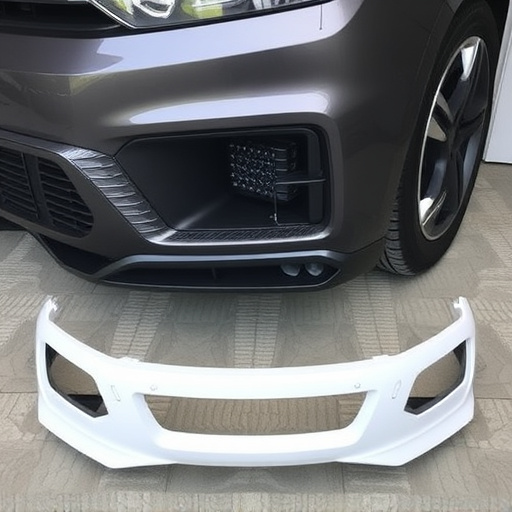Precision frame alignment is a vital process that maintains and restores vehicle structural integrity through specialized equipment adjusting suspension, steering, and chassis components. It addresses issues like uneven tire wear and poor handling, optimizing performance, safety, and car body restoration post-accidents. Regular precision frame alignment prevents costly repairs, enhances control and stability, reduces noise levels, improves ride quality, and preserves the car's resale value.
Precision frame alignment is a critical yet often overlooked aspect of vehicle maintenance. By ensuring the frame’s structural integrity, this process significantly impacts overall vehicle health and safety. This article delves into the fundamentals of precision frame alignment, elucidates its effect on vehicle performance, and highlights the long-term benefits for drivers. Understanding these key concepts can empower folks to make informed decisions regarding their vehicle care.
- Understanding Precision Frame Alignment: The Basics
- How Precision Frame Alignment Affects Vehicle Integrity
- Benefits of Correct Frame Alignment for Overall Vehicle Health
Understanding Precision Frame Alignment: The Basics

Precision frame alignment is a critical process that ensures the structural integrity of a vehicle. It involves meticulously adjusting and realigning various components of the car’s chassis to maintain or restore their original specifications. The primary goal is to ensure all parts are properly aligned, promoting optimal performance and safety.
When a vehicle undergoes precision frame alignment, specialized equipment measures and adjusts the suspension, steering, and chassis components. This process addresses issues like uneven tire wear, poor handling, or damage from accidents, which can compromise the overall vehicle integrity. By correcting these misalignments, it becomes easier to maintain proper tire services and even facilitates car body restoration in cases of significant structural damage.
How Precision Frame Alignment Affects Vehicle Integrity

Precision frame alignment plays a pivotal role in upholding the structural integrity of your vehicle. The frame is the backbone of any car, and ensuring it’s aligned correctly means all components work harmoniously together. When the frame is misaligned, it can lead to uneven tire wear, abnormal suspension wear, and even unsafe driving conditions. A professional auto body shop uses advanced technology to precisely realign the frame, minimizing these issues.
This meticulous process addresses any imperfections or damage that might have occurred due to accidents or regular wear and tear in an auto maintenance setting. By restoring proper alignment, it not only enhances the vehicle’s overall performance but also extends the life of its various parts, including crucial components within the auto body repair process. This is especially important for maintaining optimal handling, stability, and safety during everyday driving.
Benefits of Correct Frame Alignment for Overall Vehicle Health
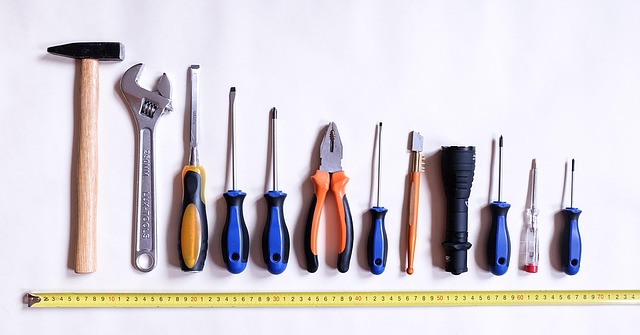
Correct frame alignment is paramount for maintaining optimal vehicle health and performance. When a car’s frame is misaligned, it can lead to a host of issues that affect both safety and aesthetics. Misalignment can cause uneven tire wear, steering problems, and even damage to suspension components over time. By ensuring precise frame alignment, drivers can extend the life of their vehicles, prevent costly repairs related to auto body repair or bumper repair, and maintain better control while driving.
This benefits go beyond mere structural integrity; it also impacts the overall driving experience. Correctly aligned frames contribute to smoother rides, improved handling, and reduced noise levels. Moreover, precision frame alignment can play a role in minimizing the need for paintless dent repair, as it helps to maintain the vehicle’s original shape and integrity. In turn, this preserves the car’s appearance and resale value.
Precision frame alignment is not just a technical concept but a cornerstone of vehicle integrity. By ensuring proper alignment, manufacturers and mechanics can significantly enhance overall vehicle health, safety, and performance. This basic yet crucial process plays a vital role in maintaining structural integrity, optimizing tire wear, and improving handling dynamics. Embracing precision frame alignment as a standard practice is thus a game-changer for the automotive industry, fostering both efficient operations and satisfying driving experiences.

